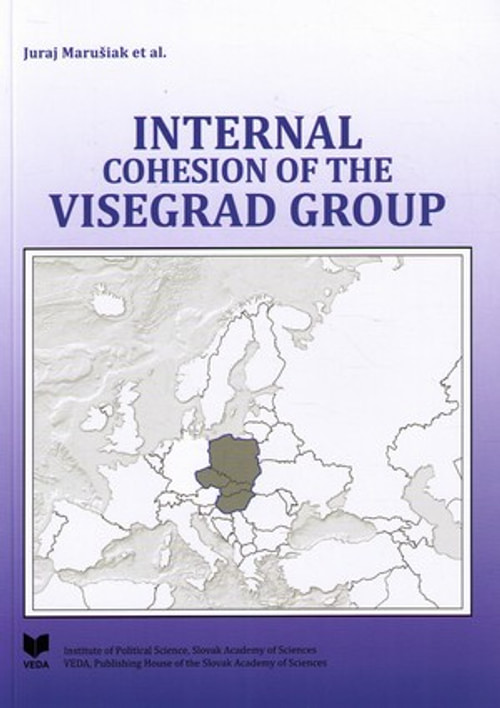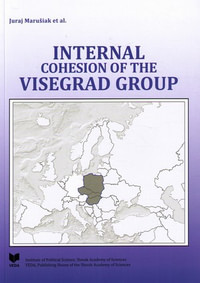
K prevádzke internetového kníhkupectva Artforum využívame cookies slúžiace na zabezpečenie a meranie funkčnosti, marketingové účely a zaistenie vášho maximálneho pohodlia a spokojnosti.
Cookies sú malé textové súbory s obmedzenou časovou platnosťou ukladáné vo vašom prehliadači. Umožňujú nám rozoznať vás, zabezpečiť nákup a identifikovať, čo vás napr. najviac zaujíma, čo vyhľadávate alebo či je pre vás všetko dostatočne pochopiteľné. Rovnako ich používame na marketingové účely, na zobrazenie reklamy a obsahu stránky, ktorý je tak pre vás relevantnejší. Pracujeme tiež s pixelmi – malými neviditeľnými obrázkami, ktoré zbierajú informácie o vašom prehliadači a zariadení.
Cookies nám pomáhajú zaistiť vaše maximálne pohodlie a spokojnosť pri nákupe.
Okrem týchto možností môžete využiť možnosti zabudované priamo do vášho prehliadača na zmazanie existujúcich alebo blokovanie nových cookies. Nezabudnite, že nastavenia prehliadača budete musieť upraviť na každom zariadení, kde budete prehliadať naše internetové kníhkupectvo. Ďalšie prehliadače.
Ak máte k tomuto cookies vyhláseniu akékoľvek otázky, dajte nám vedieť.
Toto prehlásenie bolo naposledy aktualizované 22.04.2023.

The aim of the publication is to analyze whether there is any Visegrad commonly shared identity or not and what could be the integrative factor of the Visegrad Group. The authors of the publication cover the following topics – historical identities, historical memory, economic cohesion and the level of economic cooperation of the V4 states, the role of the Visegrad topics in the university education and the political culture of the V4 states.
The publication shows that the Visegrad cooperation is still based on the interests rather than on the commonly shared identity. However, the citizens of V4 countries already perceive Visegrad as a relevant and meaningful regional group. The fact that Visegrad is considered by the domestic political elites as well as by the political elites abroad as a “brand” or “mark” has a significant contribution to the construction of the regional identity. However, still the motivation of the political leaders to develop the Visegrad cooperation is more pragmatic than based on the awareness of belonging together. The external factors (the EU, gas crisis between Russia and Ukraine in January 2009) and their demand for response still have more efficient impact on the strengthening of V4 cooperation compared to the pressure from inside. V4 could be regarded as more successful project of transition and integrationcompared to the rest of post-communist states in Central and East Europe both from political and economic perspective. However, there are still substantial differences in the level of economic development, impact of crisis on the V4 states economies, in the living standards, as well as in the political cultures and patterns of political behaviour of citizens. The region of Central and East Europe, including Visegrad, still remains a periphery of the EU, although the EU membership of V4 countries and generally the EU presence in the entire region acts as a factor of stability and contributes to its de-peripheralization. The significant trend for the Visegrad societies is the decreasing level of democracy and growing support of authoritarianism in the region. The de-democratization is not purely the result of sophisticated political programs of certain parts of Visegrad political elites, but it is a result of subconscious practice and pragmatically formulated short-term political targets. However, Visegrad is still a zone of stability, compared to South, South East and East Europe, in part because of the more successful reforms in 1990s and higher efficiency of governance. The peripheralization and marginalization still remains a certain threat for the V4 and Central Europe in general. Such threats are not only the results of the economic or political infrastructure inherited from the Communist past, but their sources consist in some domestic policies implemented since the political changes at the turn of1980s and 1990s. The improvement of the efficiency of the government’s engagement in the economy is highly recommended. The changes are required in the regional policy as well in order to push the subnational territorial units to formulate their own autonomous approaches to regional development in order to overcome the regional disparities. A significant gap still persists between the “old EU members” and Central European states, including V4, in the financing of the education, science and welfare system. The underdevelopment of these branches could have a negative impact on the future of democracy in the entire region of Central and East Europe.

Aby ste mohli používať wishlist v našom internetovom kníhkupectve, musíte sa najprv prihlásiť. Ak u nás ešte nemáte vlastné konto, môžete si ho vytvoriť registráciou.
V prípade, že si neviete spomenúť na svoje heslo si ho môžete obnoviť zadaním svojej e-mailovej adresy, ktorú ste použili pri registrácii, kam Vám zašleme návod. V prípade ďalších problémov nás kontaktujte.
Pokračujte zadaním e-mailovej adresy pre obnovenie Vášho hesla| Tel.: |
+421 948 161 216 Zavolajte nám v pondelok od 9:00 |
| E-mail: | istore@artforum.sk |